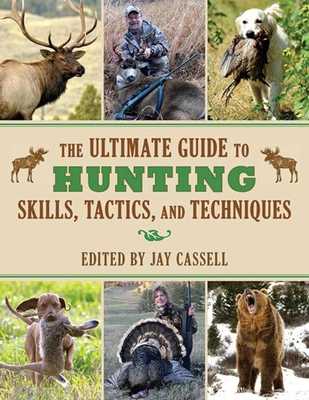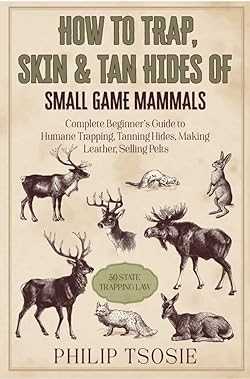Contents
An In-Depth Guide to What is Considered Small Game – Everything You Need to Know

When it comes to hunting, the term “game” encompasses a wide range of animals that can be legally pursued for sport or sustenance. While big game such as deer and elk may be the first to come to mind, there is also a whole category of smaller animals that fall under the designation of small game.
So, what exactly is considered small game? Small game typically refers to birds and mammals that are smaller in size and are legal to hunt within specific seasons and regulations. This can include species like rabbits, squirrels, grouse, pheasants, and quail, among others.
One of the key characteristics of small game is that they reproduce more rapidly compared to larger animals, which allows for sustainable hunting practices. They are also known for their adaptability to different habitats, making them accessible to hunters in various geographic areas. Additionally, small game hunting offers a different experience compared to big game hunting, as it often involves smaller firearms or archery equipment.
Small game hunting can be an excellent option for beginners or those looking for a different type of hunting experience. It provides opportunities to develop essential hunting skills such as tracking, stalking, and marksmanship. It also offers a chance to enjoy the outdoors, appreciate nature, and provide a sustainable source of food.
Understanding Small Game Hunting

Hunting game animals can be an exhilarating and challenging experience for outdoor enthusiasts. While larger animals like deer and elk may come to mind when thinking about hunting, small game hunting is also a popular and rewarding activity.
So, what exactly is considered small game? Small game refers to animals that are generally smaller in size and are hunted for sport or food. This typically includes animals such as rabbits, squirrels, birds (like quail and pheasants), and small predators like foxes and raccoons.
Small game hunting involves tracking, locating, and pursuing these animals with the intention of capturing or killing them. It requires a high level of skill, patience, and knowledge of the animal’s behavior and habitat.
One of the advantages of small game hunting is the opportunity to hunt throughout the year, as many small game species have longer hunting seasons compared to larger game animals. This allows hunters to extend their hunting season and enjoy the thrill of the chase for a longer period of time.
Small game hunting can also be a great way for beginners to get started in hunting. The smaller size and faster movements of small game animals can provide a more accessible and less intimidating hunting experience for those new to the sport.
It’s important to note that small game hunting is regulated by specific hunting seasons, bag limits (the number of animals you are allowed to harvest), and specific hunting methods depending on the region and species being hunted. These regulations are in place to ensure sustainable hunting practices and the conservation of wildlife populations.
Whether you’re a seasoned hunter looking for a new challenge or a beginner wanting to dip your toes into the world of hunting, small game hunting offers a unique and exciting opportunity to connect with nature and test your skills in the great outdoors.
What is Considered Small Game?

Small game refers to any species of animals that are typically smaller in size and are legally permitted to be hunted for sport or food. This category includes a wide variety of animals, ranging from rabbits and squirrels to birds such as quail and pheasants.
Small game hunting is a popular and challenging outdoor activity that requires skill, patience, and knowledge of the local regulations. It is often considered a great way to introduce beginners to the world of hunting, as it provides a less intimidating experience compared to hunting larger game like deer or elk.
The specific definition of small game may vary depending on the region and the hunting regulations in place. In some areas, certain species of predators, such as coyotes or foxes, may also be classified as small game. It is important for hunters to familiarize themselves with the local laws and restrictions to ensure a responsible and legal hunting experience.
Small game hunting can be done using various methods, including firearms, bows and arrows, and even falconry. It often requires hunters to practice stealth and camouflage techniques to outsmart their prey, making it a thrilling and challenging pursuit.
In addition to being a recreational activity, small game hunting also serves a practical purpose. It helps to manage wildlife populations and contributes to conservation efforts. By hunting smaller game species, hunters can help maintain a balanced ecosystem and prevent overpopulation, which can have negative impacts on the environment.
Overall, small game hunting offers an exciting and rewarding outdoor experience for those who enjoy the thrill of the chase and the satisfaction of bringing home their own food.
Classification of Small Game

Small game is considered to include a wide variety of animals that are hunted for sport or food. These animals are typically smaller in size compared to large game such as deer or elk, and they can be found in various habitats including forests, fields, and waterways.
The classification of small game is determined by their biological characteristics and hunting regulations. Here is a table outlining some common types of small game:
| Type of Game | Description |
|---|---|
| Rabbits | Found in a variety of habitats, rabbits are small mammals with long ears and a short tail. They are known for their rapid reproduction rates. |
| Squirrels | Squirrels are arboreal rodents that can be found in trees or on the ground. They are known for their bushy tails and acrobatic movements. |
| Grouse | Grouse are bird species that are commonly hunted for their meat. They are known for their plump bodies and short wings. |
| Quail | Quail are small birds that are often found in brushy areas. They have a distinctive plume on their head and are known for their fast and agile flight. |
| Ducks | Ducks are waterfowl that are commonly hunted in wetland areas. They have webbed feet and are known for their beautiful plumage. |
This is just a small selection of the many small game species that can be hunted. It’s important to check local hunting regulations and obtain the necessary licenses and permits before hunting any type of game, small or large.
Common Types of Small Game

When it comes to hunting, knowing what game is considered small is essential. Common types of small game that are typically targeted by hunters include:
- Rabbits: Known for their speed and agility, rabbits are a popular choice among small game hunters. They can be found in various habitats, including fields, forests, and grasslands.
- Squirrels: Squirrels are skilled climbers and can be found in trees, making them an exciting target for hunters. They are known for their quick movements and agility.
- Quail: Quail are small, ground-dwelling birds that are often hunted for their meat. They are known for their distinctive calls and can typically be found in fields, grasslands, and open woodlands.
- Ducks: While ducks are larger than some other small game species, they are still commonly hunted by small game hunters. They can be found in wetland areas such as ponds, lakes, and marshes.
- Pheasants: Pheasants are beautiful birds that are often targeted by small game hunters. They are typically found in agricultural areas and grasslands.
These are just a few examples of the common types of small game that hunters may encounter. It’s important to research the specific regulations and hunting seasons in your area before pursuing any type of game.
Why Hunt Small Game?

Hunting small game can offer a unique and rewarding experience for hunters of all skill levels. While big game hunting may have the adrenaline rush of pursuing large and powerful animals, small game hunting provides its own set of challenges and benefits.
1. Variety: Small game hunting allows hunters to pursue a wide range of animals, including rabbits, squirrels, birds, and more. This variety can make each hunting trip exciting and unpredictable.
2. Skill development: Hunting small game requires different skills compared to big game hunting. It requires patience, accuracy, and a keen eye for spotting and stalking animals in densely wooded areas. By engaging in small game hunting, hunters can develop and refine these skills.
3. Accessibility: Unlike big game hunting, small game hunting can often be done in more accessible areas. This makes it a great option for hunters who may not have access to vast wilderness or private hunting grounds. Small game can often be found in public hunting lands, ensuring that hunting opportunities are widely available.
4. Opportunity to learn: Hunting small game provides hunters with the opportunity to learn more about animal behavior, habitats, and ecosystems. By observing the movements and patterns of small game, hunters can gain valuable insights into the natural world.
5. Conservation: Hunting small game can also contribute to conservation efforts. Small game populations need to be managed to ensure ecological balance and the health of the overall ecosystem. Responsible hunting helps control populations and prevent overpopulation, which can lead to habitat degradation and disease spread.
In conclusion, hunting small game offers a unique and rewarding experience that allows hunters to develop their skills, enjoy variety in their hunting pursuits, and contribute to conservation efforts. Whether you’re a seasoned hunter or just starting out, small game hunting can be a fulfilling and enriching activity.
Benefits of Small Game Hunting

Hunting small game is a popular activity among outdoor enthusiasts. There are several benefits to participating in small game hunting.
- Small game hunting is a great way to develop and improve hunting skills. Hunting small game requires different techniques and strategies compared to larger game. It helps hunters become more adept at tracking, stealth, and accuracy.
- Hunting small game is also a more accessible form of hunting. Unlike big game, small game can often be found in a wider range of habitats, making it easier for hunters to find and pursue their targets. This means that individuals who may not have access to large tracts of land can still enjoy the thrill of hunting.
- In addition, hunting small game can be less expensive than hunting larger game. The cost of licenses, permits, and equipment for small game hunting is typically lower. This makes it a more affordable option for individuals who want to get into hunting but have a limited budget.
- Hunting small game can also be a more sustainable choice. Small game populations often reproduce more quickly than larger game, meaning that hunting them is less likely to have a negative impact on the overall population. This can help maintain a healthy ecosystem and ensure that hunting remains a viable activity for future generations.
- Lastly, hunting small game can provide a valuable source of food. Many small game species are edible and can be enjoyed as part of a nutritious and sustainable diet. Hunting and preparing small game can also be a rewarding and fulfilling experience.
In conclusion, small game hunting offers a variety of benefits, from developing hunting skills to accessibility and affordability. It can also be a sustainable and rewarding way to enjoy the outdoors and provide food for oneself and their family.
Conservation and Sustainable Hunting

What is considered small game is not just a question of classification or legal definitions. It is also closely tied to the principles of conservation and sustainable hunting. Small game hunting can play a crucial role in promoting habitat conservation and management.
Conservation is the responsible management of natural resources to ensure their sustainable use. When it comes to small game hunting, this means carefully regulating the number of animals harvested to avoid depleting their populations. Sustainable hunting practices focus on maintaining the balance between the needs of hunters and the needs of the wildlife.
Through small game hunting, hunters contribute to wildlife population control, especially in cases where certain species have become invasive or overpopulated. By targeting specific species, hunters can help prevent damage to agricultural crops, forests, and native wildlife. This plays a significant role in maintaining the overall health and balance of ecosystems.
Additionally, conservation efforts often involve habitat restoration and management. A loss of suitable habitat is a major threat to many small game species. Habitat destruction due to human activities, urbanization, and climate change can lead to the decline of certain types of small game. Hunters and conservationists work together to protect and restore essential habitats, such as wetlands and forests, that serve as homes for small game species.
Conservation and sustainable hunting practices also promote ethical considerations and responsible hunting behavior. Hunters are encouraged to abide by hunting regulations, harvest only what they will use, and engage in fair chase hunting. This ensures that hunting does not result in unnecessary harm or stress to the targeted animals.
In conclusion, conservation and sustainable hunting are essential components of what is considered small game. By adhering to these principles, hunters can contribute to the long-term viability of small game species and their habitats.
Small Game Hunting Techniques

When it comes to small game hunting, it is important to know what exactly is considered small game. Small game refers to animals that are smaller in size and generally easier to hunt compared to larger game such as deer or elk. Common examples of small game include rabbits, squirrels, pheasants, and quails.
There are various techniques that hunters employ when pursuing small game. These techniques can vary depending on the specific type of game being hunted, as well as the hunter’s personal preferences and hunting location. Here are some common small game hunting techniques:
- Still Hunting: This technique involves moving slowly and quietly through the hunting area, keeping an eye out for small game. The hunter may pause periodically to wait for movement or listen for signs of game nearby.
- Stalking: Stalking is a more active approach where the hunter actively pursues small game. This technique requires stealth and the ability to move silently through the woods or fields to get within range of the game.
- Spot-and-Stalk: In this technique, the hunter uses binoculars or a spotting scope to locate small game from a distance. Once a target is spotted, the hunter will move closer before attempting a shot.
- Working with Dogs: Utilizing hunting dogs is a popular technique for small game hunting, particularly for species like rabbits and birds. The dogs are trained to flush out game, making it easier for the hunter to take a shot.
- Using Decoys and Calls: For certain types of small game, such as waterfowl, hunters may use decoys and calls to attract their target. Decoys can be set up to mimic the appearance of small game, while calls are used to mimic their vocalizations.
It is important to note that different states and countries may have specific regulations and restrictions regarding small game hunting techniques. Therefore, it is essential for hunters to familiarize themselves with the local hunting laws and regulations before engaging in any small game hunting activities.
By employing these various small game hunting techniques, hunters can increase their chances of a successful hunt and enjoy the thrill of pursuing and harvesting small game.
Firearms for Small Game Hunting

When it comes to small game hunting, choosing the right firearm is essential. Different firearms are considered ideal for hunting small game like rabbits, squirrels, and birds. Let’s take a look at what firearms are typically used for this type of hunting:
| Firearm Type | Description |
|---|---|
| Rimfire Rifles | Rimfire rifles are a popular choice for small game hunting due to their accuracy and low recoil. They are chambered for .22 caliber ammunition, which is suitable for animals like rabbits and squirrels. |
| Shotguns | Shotguns are versatile firearms that can be used for small game hunting. They are commonly used for hunting birds like ducks and pheasants, as well as small game like rabbits. Different types of shotgun ammunition, such as birdshot or small game loads, can be used depending on the target. |
| Air Rifles | Air rifles are another option for small game hunting. They are quiet and can be used in areas where noise restrictions may apply. Air rifles typically have lower velocity than firearms, but they can still be effective for hunting animals like squirrels and birds. |
When choosing a firearm for small game hunting, it’s important to consider factors such as the distance you’ll be shooting, the size of the game, and any local regulations. Additionally, always practice responsible hunting and follow all safety guidelines to ensure a successful and ethical hunting experience.

A skilled hunter, dedicated conservationist, and advocate for ethical practices. Respected in the hunting community, he balances human activity with environmental preservation.
